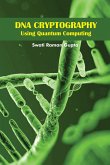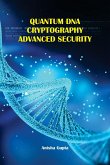DNA cryptography is an emerging field of cryptography that uses DNA molecules as a medium for encrypting and decrypting data. It is a promising area of research due to the unique properties of DNA, including its ability to store vast amounts of information and its resilience to environmental factors. Quantum computing, on the other hand, is a revolutionary technology that uses the principles of quantum mechanics to perform computations that are impossible for classical computers. The combination of DNA cryptography and quantum computing has the potential to revolutionize the field of cryptography. With the help of quantum computers, it is possible to perform complex calculations that are required for DNA cryptography much faster than classical computers. This can lead to the development of highly secure encryption techniques that can be used to protect sensitive data. One of the most promising applications of quantum computing in DNA cryptography is the development of quantum key distribution (QKD) protocols. QKD protocols use the principles of quantum mechanics to establish a secure communication channel between two parties. Unlike traditional encryption techniques, QKD protocols are not vulnerable to attacks that exploit weaknesses in the encryption algorithm or key. Another potential application of quantum computing in DNA cryptography is the development of quantum-resistant encryption techniques. With the advent of quantum computers, traditional encryption techniques are vulnerable to attacks that can break the encryption algorithm in a matter of seconds. However, quantum-resistant encryption techniques, which are based on the principles of quantum mechanics, are not susceptible to attacks by quantum computers. In conclusion, the combination of DNA cryptography and quantum computing has the potential to transform the field of cryptography. With the help of quantum computers, it is possible to develop highly secure encryption techniques that can protect sensitive data from attacks by malicious actors. As quantum computing technology continues to advance, it is likely that we will see more applications of quantum computing in DNA cryptography in the future.







